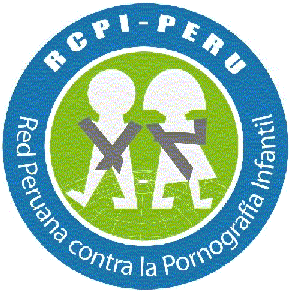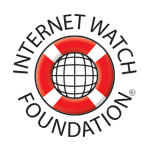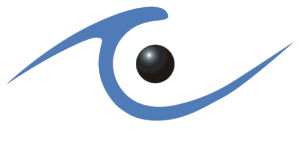Net filter plan is branded draconian
Australia.- (James Massola - The Camberra Times) Plans for a mandatory internet filter to protect Australians from child pornography have been slammed by civil liberties groups as draconian, misleading and a possible invasion of privacy.
Communications Minister Stephen Conroy had originally flagged a test of a filter that would block a list of banned websites. But plans to trial technology that will block file-sharing the primary means for sharing video, pictures and audio over the internet have provoked outrage.
It is understood that a technique known as ''packet inspection'' would be used to monitor and filter file-sharing networks, sparking fears that individual user privacy would be breached.
Senator Conroy has already been attacked for the proposed filter as it is feared the ''clean feed'' would slow down the internet for all Australians, a view supported by an Internet Industry Association report he issued last week.
Hundreds of comments critical of the filtering plan were posted on a blog run by Senator Conroy's department.
In response to the criticism that blocking a list of websites would not work, Senator Conroy revealed in a post on his department's blog that a test of a file-sharing filter could also go ahead.
Civil Liberties Australia director Lance Williamson said a packet inspection could be a possible invasion of privacy.
''What you are really talking about [with file sharing] is akin to Australia Post opening our mail,'' he said. ''Conroy needs to clearly articulate his objectives and he hasn't done that. 'He is talking about targeting child pornography, and the list of sites he talks about are far more extensive than that.''
Mr Williamson said the move could mean ''every piece of communications is going to be scrutinised''.
''The difficulty Civil Liberties has is that they are not talking about the framework, the process ... what we are lacking is an understanding of what is going to happen,'' he said.
Internet Industry Association chief executive Peter Coroneos has also attacked plans to include file-sharing in the trial, saying packet inspection could technically be an invasion of privacy.
''I would expect internet users would want to know how the minister wanted to manage this incursion into people's privacy,'' he said. ''Potentially, users may feel threatened by the imposition of technology that now examines the data stream they are engaged in.''
Mr Coroneos said plans to include file-sharing in the trial ''would only add further anxiety to industry participants''.
Jeremiah Hutchinson, from the Digital Liberty Coalition, said any form of internet filter was an ''Orwellian measure'' that would not effectively combat the sharing of child pornography.
And he predicted the budget for filtering ''blown out of the water'' if file-sharing networks were included beyond the testing stage. ''The funding should be going to the AFP. They are doing an effective job of punishing people who using the internet to consume illegal material,'' he said.
A spokesman for the minister dismissed claims that file-sharing filtering had been a last-minute addition to the Government's plans. And he dismissed privacy fears, saying all ISP customers taking part in the trial would be informed about what was being tested.
Internet service providers Optus and iiNet have applied to take part in the Government's trial of filtering software.
An Optus spokeswoman said the company still did not know exactly when the trial would begin.
IiNet has said it is taking part in the trial to prove that internet filtering does not work.
Communications Minister Stephen Conroy had originally flagged a test of a filter that would block a list of banned websites. But plans to trial technology that will block file-sharing the primary means for sharing video, pictures and audio over the internet have provoked outrage.
It is understood that a technique known as ''packet inspection'' would be used to monitor and filter file-sharing networks, sparking fears that individual user privacy would be breached.
Senator Conroy has already been attacked for the proposed filter as it is feared the ''clean feed'' would slow down the internet for all Australians, a view supported by an Internet Industry Association report he issued last week.
Hundreds of comments critical of the filtering plan were posted on a blog run by Senator Conroy's department.
In response to the criticism that blocking a list of websites would not work, Senator Conroy revealed in a post on his department's blog that a test of a file-sharing filter could also go ahead.
Civil Liberties Australia director Lance Williamson said a packet inspection could be a possible invasion of privacy.
''What you are really talking about [with file sharing] is akin to Australia Post opening our mail,'' he said. ''Conroy needs to clearly articulate his objectives and he hasn't done that. 'He is talking about targeting child pornography, and the list of sites he talks about are far more extensive than that.''
Mr Williamson said the move could mean ''every piece of communications is going to be scrutinised''.
''The difficulty Civil Liberties has is that they are not talking about the framework, the process ... what we are lacking is an understanding of what is going to happen,'' he said.
Internet Industry Association chief executive Peter Coroneos has also attacked plans to include file-sharing in the trial, saying packet inspection could technically be an invasion of privacy.
''I would expect internet users would want to know how the minister wanted to manage this incursion into people's privacy,'' he said. ''Potentially, users may feel threatened by the imposition of technology that now examines the data stream they are engaged in.''
Mr Coroneos said plans to include file-sharing in the trial ''would only add further anxiety to industry participants''.
Jeremiah Hutchinson, from the Digital Liberty Coalition, said any form of internet filter was an ''Orwellian measure'' that would not effectively combat the sharing of child pornography.
And he predicted the budget for filtering ''blown out of the water'' if file-sharing networks were included beyond the testing stage. ''The funding should be going to the AFP. They are doing an effective job of punishing people who using the internet to consume illegal material,'' he said.
A spokesman for the minister dismissed claims that file-sharing filtering had been a last-minute addition to the Government's plans. And he dismissed privacy fears, saying all ISP customers taking part in the trial would be informed about what was being tested.
Internet service providers Optus and iiNet have applied to take part in the Government's trial of filtering software.
An Optus spokeswoman said the company still did not know exactly when the trial would begin.
IiNet has said it is taking part in the trial to prove that internet filtering does not work.














































